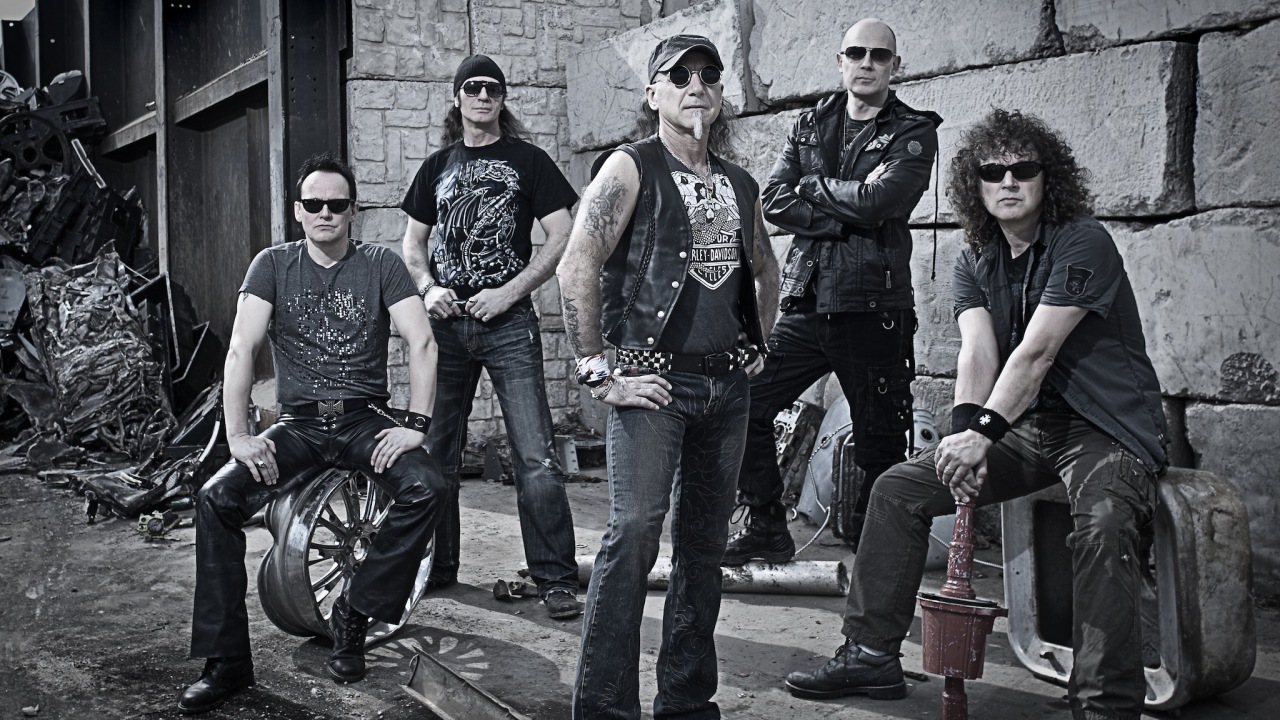Accept: Turning wilderness into rage
As the veteran Germans play The Forum, the band's Wolf Hoffmann talks to Classic Rock

Select the newsletters you’d like to receive. Then, add your email to sign up.
You are now subscribed
Your newsletter sign-up was successful
Want to add more newsletters?

Every Friday
Louder
Louder’s weekly newsletter is jam-packed with the team’s personal highlights from the last seven days, including features, breaking news, reviews and tons of juicy exclusives from the world of alternative music.

Every Friday
Classic Rock
The Classic Rock newsletter is an essential read for the discerning rock fan. Every week we bring you the news, reviews and the very best features and interviews from our extensive archive. Written by rock fans for rock fans.

Every Friday
Metal Hammer
For the last four decades Metal Hammer has been the world’s greatest metal magazine. Created by metalheads for metalheads, ‘Hammer takes you behind the scenes, closer to the action, and nearer to the bands that you love the most.

Every Friday
Prog
The Prog newsletter brings you the very best of Prog Magazine and our website, every Friday. We'll deliver you the very latest news from the Prog universe, informative features and archive material from Prog’s impressive vault.
Accept are not content to be a nostalgia band. In fact, current album Blind Rage did something they’ve never experienced before.
“For the first time ever we had a number one album in Germany. It took us by surprise. We didn’t know this would be a successful period. Three albums and five years with Mark Tornillo (vocals) and we are strong.”
So, it’s no surprise that the band’s contemporary vigour is reflected in their live setlist. Unlike many of their peers they feel confident enough to pepper their performance with material from Blind Rage, and it’s immediate predecessors Blood Of The Nations (2010) and Stalingrad (2012).
“There are very few bands who are trying really hard to make relevant new albums”, says guitarist Wolf Hoffmann. “A lot of our friends take the attitude that nobody wants anything new from them, so they go out and play old stuff. We don’t want to suck up to our past and rest on our laurels. We are opening a new chapter.”
In London, the band get pumping with no less than four modern tracks, slicing through Stampede, Stalingrad, Hellfire and 200 Years. And the audience enthusiasm is at such a high level you’d never have know these don’t come from their glory days in the 80s.
“It’s tricky putting together a setlist, but it’s a good problem to have. Now half of the set is new stuff and half of it is old. People really seem to like the fact that we are playing a shit load from Blind Rage. It’s remarkable to see the brand new songs going down as well as the songs which have been around for 30 years.”
It’s only with the double pack of Losers and Winners and London Leather Boys that the band ease their way back 30 years. Tornillo’s vocals actually have a lot more in common with Brian Johnson than with Udo Dirkschneider. In fact, his whole stage persona brings to mind the AC/DC master, and not just because he wears a hat. He has a stage bonhomie and grinning residue that lends a certain relaxed edge to everything.
The latest news, features and interviews direct to your inbox, from the global home of alternative music.
“Maybe it was because we were away for so long [effectively a decade from 1997], and feel we still have something to prove. It’s a new era, and we wanted Blind Rage to leave a permanent mark. This is a new time, and we have to prove ourselves all over again.”
While guitarist Herman Frank and drummer Stefan Schwarzmann add a lustre to the sound and style it’s guitarist Wolf Hoffmann and bassist Peter Baltes who hold the attention. They are the soul and passion of the band, as has been the case now for four decades. Their interplay is remarkable, and at times the combination is as potent as anything other bands can achieve with dual guitars.
“Peter and I still write the songs and present to them the rest of the guys. This is still our band. We drive everything. We’ll listen to what other people say, but don’t always take notice. We are at home and at ease enough now to write the songs on target. We took eight months to write the new album, and wrote a lot more than we needed. We actually had 18 songs completely written, and 15 were recorded and finished. That never happened before. We were notoriously short of material in the past.”
With a lot of bands, even the most experienced, you can get a sudden dip in the middle of a set. But not here. The band power on through Shadow Soldiers and From The Ashes We Rise, underlining just how much energetic the 21st century era for the band has been so far, before Restless And Wild hurtles us towards the climax.
“Judas Priest, AC/DC, Black Sabbath and Deep Purple are the bands who most influenced Accept. But don’t expect us ever to introduce the Hammond organ into our sound. That will never happen!”
The main set ends with an attack quartet of Princess Of The Dawn, Dark Side Of My Heart and Pandemic, with Fast As A Shark skidding it all towards a fitting climax, once again proving that Accept are among the most important of all influences on the classic thrash scene.
“Do we get enough acknowledgement from people for our influence in metal? We’re quite happy with the respect we get from the music industry. Yes, we were the first metal band out of Germany. At the start, we were kids who dreamt of touring the world. And you had to go outside of Germany to be a professional musician. We weren’t really accepted in Germany until we came back from the States in 1984. But it’s always said that a lot of German metal bands were formed after Accept made our mark. Indirectly we did help to create the German metal scene. But that was never what we set out to do. So, it’s hard for me to take credit.”
The encore again mixes old and new, with the mid-paced madness of Teutonic Terror linking the flamboyant Metal Heart and the always welcome finale, Balls To The Wall. It’s a crisp, plunging way to finish off the night.
“I was into The Beatles and Jethro Tull early on. I listened to the latter’s Stand Up all day long. My sister had it, and I’d play it all the time.”
The one disappointment about the gig is the modest turn out. Accept should be capable of packing places like this. Yet while it’s ultimately too big for their present stature, the performance is of arena headlining stature, which is where Accept belong.
“We wanted to move forward, and present ourselves in a nice environment, which is why we did The Forum this time. We haven’t given up on the UK. Metal is enjoying a resurgence there, so we want to play more shows in the future.”
The smiles on everyone’s face at the end, band and fans alike, says it all. Accept have the sort of commitment and charismatic determination that this writer first witnessed in 1980, when the youthful band headlined the Markthalle in Hamburg. Living in the past? No, using it as a springboard into a bright future. Turning Wildness into Rage.
Malcolm Dome had an illustrious and celebrated career which stretched back to working for Record Mirror magazine in the late 70s and Metal Fury in the early 80s before joining Kerrang! at its launch in 1981. His first book, Encyclopedia Metallica, published in 1981, may have been the inspiration for the name of a certain band formed that same year. Dome is also credited with inventing the term "thrash metal" while writing about the Anthrax song Metal Thrashing Mad in 1984. With the launch of Classic Rock magazine in 1998 he became involved with that title, sister magazine Metal Hammer, and was a contributor to Prog magazine since its inception in 2009. He died in 2021.

